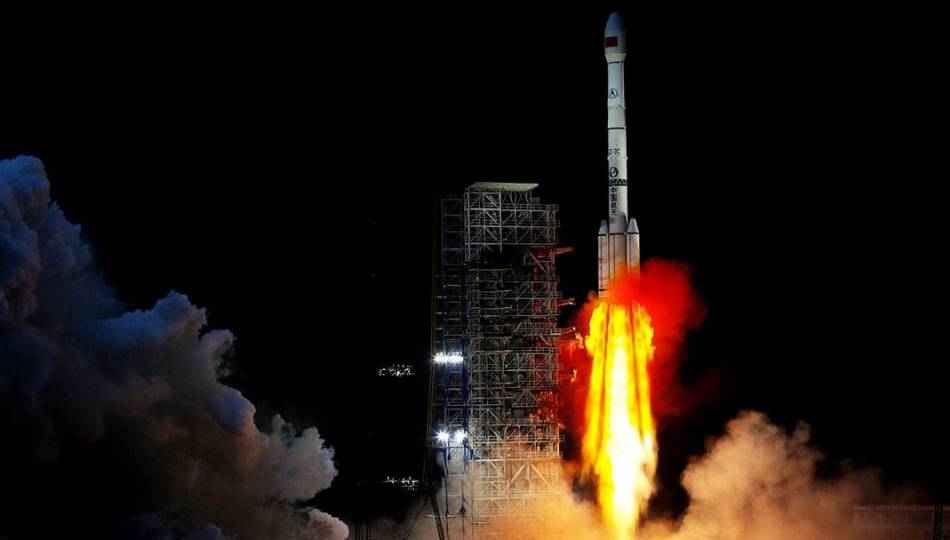China to land on the dark side of the moon: Report
 In what will soon become another first for all of humanity, China is planning to land its lunar probe Chang'e 4 on the dark side of the moon. According to a recent report by the state-owned Xinhua News Agecny, the unmanned spacecraft was launched on a Long March-3B rocket on December 7. Chang'e 4 reached lunar orbit five days later and deployed its landing craft and surface rover in preparation for descent. The planned landing site is Von Kármán, a 180-kilometre crater in the South Pole–Aitken basin. The spacecraft reportedly entered an elliptical orbit around the moon on December 12 at 6:25 AM IST (12:55 AM GMT). From the pericenter, the point of closest approach for any celestial body in an elliptical orbit, the spacecraft is only 14.4 kilometres from the moon's rocky surface. The China National Space Administration reportedly announced that it would soon "prepare for the first-ever soft landing on the far side of the moon". From the dark side of the moon direct communication with Earth is not possible as the moon itself blocks all transmissions. For this reason, the Chinese National Space Administration set up a communications relay satellite called Queqiao (meaning Magpie Bridge) back in May this year in a halo orbit around the moon. Two other microsatellites, Longjiang-1 and Longjiang-2 (meaning Dragon River), were launched along with Queqiao for additional relay support. Chang'e 4's payload includes a landing camera (LCAM), a terrain camera (TCAM), and a low-frequency spectrometer (LFS) to study solar bursts, among other equipment. Chang'e 4's mission on the dark side of the moon is to measure the surface temperature, chemical compositions of lunar rocks and soils, study cosmic rays, observe the solar corona, and carry out low-frequency radio astronomical research.
In what will soon become another first for all of humanity, China is planning to land its lunar probe Chang'e 4 on the dark side of the moon. According to a recent report by the state-owned Xinhua News Agecny, the unmanned spacecraft was launched on a Long March-3B rocket on December 7. Chang'e 4 reached lunar orbit five days later and deployed its landing craft and surface rover in preparation for descent. The planned landing site is Von Kármán, a 180-kilometre crater in the South Pole–Aitken basin. The spacecraft reportedly entered an elliptical orbit around the moon on December 12 at 6:25 AM IST (12:55 AM GMT). From the pericenter, the point of closest approach for any celestial body in an elliptical orbit, the spacecraft is only 14.4 kilometres from the moon's rocky surface. The China National Space Administration reportedly announced that it would soon "prepare for the first-ever soft landing on the far side of the moon". From the dark side of the moon direct communication with Earth is not possible as the moon itself blocks all transmissions. For this reason, the Chinese National Space Administration set up a communications relay satellite called Queqiao (meaning Magpie Bridge) back in May this year in a halo orbit around the moon. Two other microsatellites, Longjiang-1 and Longjiang-2 (meaning Dragon River), were launched along with Queqiao for additional relay support. Chang'e 4's payload includes a landing camera (LCAM), a terrain camera (TCAM), and a low-frequency spectrometer (LFS) to study solar bursts, among other equipment. Chang'e 4's mission on the dark side of the moon is to measure the surface temperature, chemical compositions of lunar rocks and soils, study cosmic rays, observe the solar corona, and carry out low-frequency radio astronomical research.from Latest Technology News http://bit.ly/2GNesdu
Comments
Post a Comment